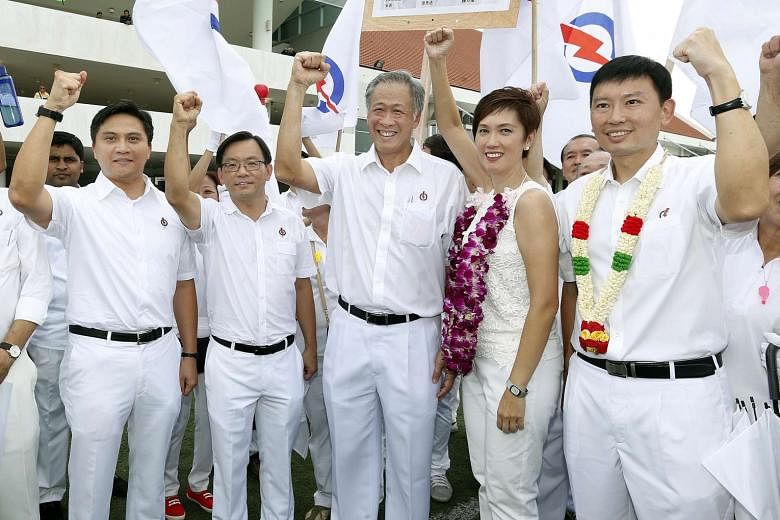SINGAPORE - Feedback from People's Action Party (PAP) MPs and thinking 10 to 15 years ahead are key factors the Government considers when it crafts policies, Defence Minister Ng Eng Hen said on Wednesday (Sept 2) morning.
The People's Action Party organising secretary was weighing in on the argument that key policy changes under the PAP government were driven by a stronger opposition presence in Parliament, which has been raised by opposition parties in recent days.
"In all the policies we've seen changed it really has been the Government's own thinking over the 10 to 15 year horizon and the PAP MPs that make the difference," said Dr Ng, one day after Nomination Day.
During the morning rush hour earlier, he and his four running mates in Bishan-Toa Payoh GRC greeted commuters and residents and handed them flyers at Bishan MRT.
The other four PAP candidates in Bishan-Toa Payoh GRC are: Senior Minister of State in Transport and Finance Josephine Teo, and election first-timers Chong Kee Hiong, Saktiandi Supaat and Chee Hong Tat.
Dr Ng, who previously helmed the manpower and education ministries, said: "When we discussed in Cabinet, the reality is that when we're thinking of policies, we (get) feedback mainly from our MPs."
PAP MP feedback is critical "because they're on the ground and they have to meet their residents", he said. They also form the majority in Parliament.
"On whether the opposition MPs' feedback is important for policies, some of it is important, but because our PAP MPs are quite vigorous in their views because they have to meet their residents I would say we give a lot more weight to our PAP MPs," added Dr Ng.
The Government also typically plans 10 to 15 years in advance. For example, the Workfare scheme that supplements the pay of low-income workers was introduced as the Workfare Bonus in 2006, said Dr Ng.
The demographics of Singapore's ageing population was the main driver for change when it came to schemes for the elderly such as Silver Support, MediShield Life and the Pioneer Generation Package, said Dr Ng.
"Come 2030, we will have close to a million people who are 60 years old (or older), so demography was the most important change. And demography is also changing the way we look at foreign worker policy and SkillsFuture. If you think about it, this is what should drive us," he said.


